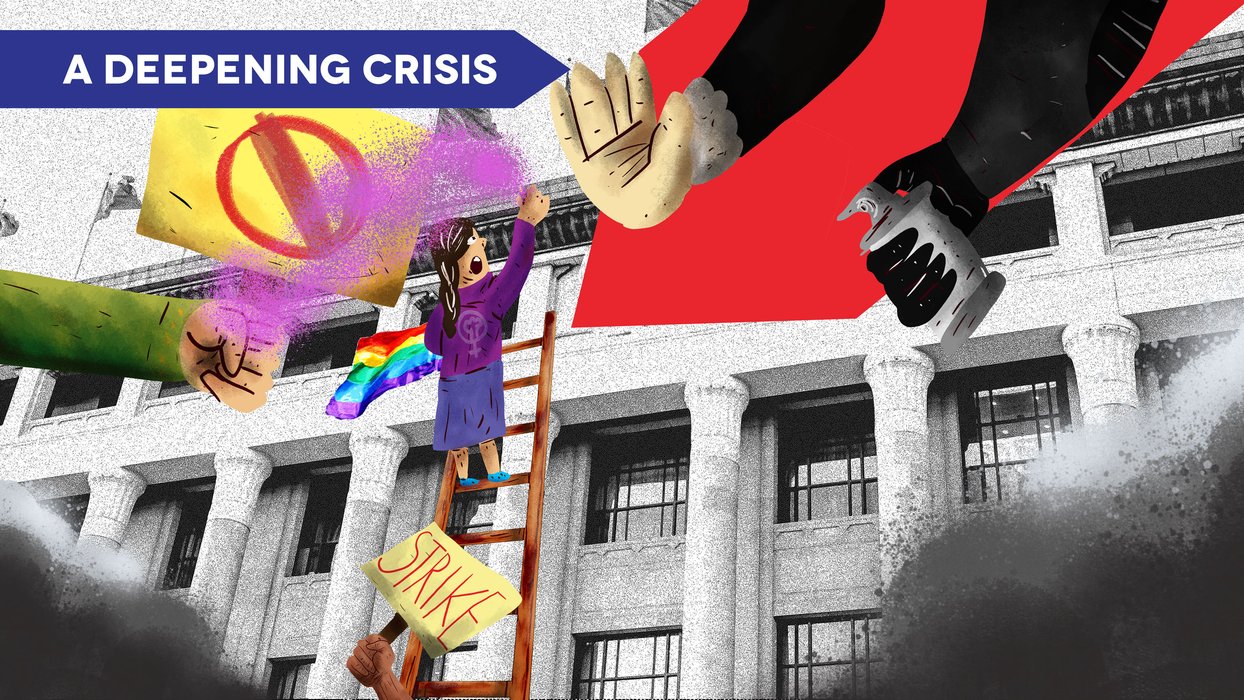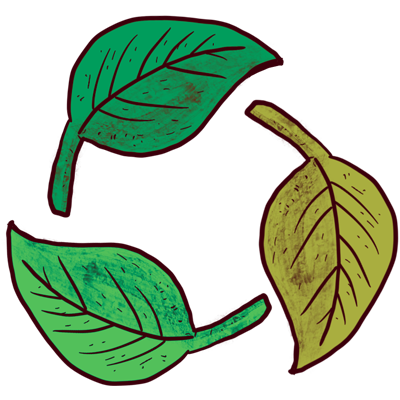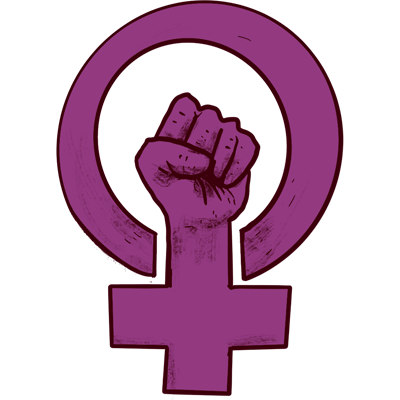Who Bears The Brunt

Climate and environmental defenders repressed
Civil society’s global call for climate action has sparked widespread activism but has also brought heightened risks for climate, environmental, land and Indigenous rights defenders. These activists share common struggles against climate impacts, environmental degradation and land dispossession, with their efforts often targeted by governments and corporations tied to industrial exploitation.

In Europe, climate defenders and protesters have faced violence, arrests and legal action. Thousands were detained in the Netherlands during climate protests. Activists in Austria, France, Italy and the UK have similarly been targeted. In the UK in July 2024, five Just Stop Oil activists received up to five years in prison for planning a peaceful roadblock protest in 2022. In Italy, non-violent activists face residence bans and surveillance orders normally reserved for organised crime groups. A new law against ‘eco-vandals’ prescribes up to five-year prison sentences and €60,000 fines (approx. US$63,300) for civil disobedience that targets monuments, and another law currently under consideration would punish other forms of peaceful protest, such as blocking roads, with up to two years in prison.
In Australia, protesters opposing the Newcastle coal terminal and climate activists challenging Woodside Energy's Browse gas project were arrested in 2024. In New Zealand, police arrested five Greenpeace protesters during a protest against mining practices in September 2024. In Indonesia, police arrested and assaulted Indigenous villagers protesting against a geothermal project. In Cambodia in July 2024, 10 environmental activists from the Mother Nature movement were convicted on trumped-up charges for their advocacy.
Climate and land defenders face severe threats. In the Americas, particularly in Brazil, Colombia, Ecuador, Mexico, Paraguay and Peru, countries where violence and assassinations often involve criminal groups linked to corporate interests. Honduras remains one of the most dangerous countries for defenders. In September 2024, Juan López, an advocate for the Guapinol River, was killed despite calls for his protection. Criminal charges are common, as seen in Bolivia, where leaders from Chiquiacá canton were charged for opposing oil exploration in a protected reserve, and in Canada, where Indigenous land defenders were convicted for protesting against the Coastal GasLink pipeline.
Environmental defenders also face repression in Africa, often when opposing extractive industries. In Ghana, the #StopGalamseyNow movement to oppose illegal goldmining practices has mobilised large protests, but these have been met with police crackdowns. In Uganda, environmental defenders have been arbitrarily detained for opposing oil projects, with officials pressuring them to renounce activism. In Madagascar, environmental protests against a mining project led to the arrest of civil society activists in August 2024.
Democracy activists and political opposition intimidated and repressed
Repression of democracy activists and political opposition has escalated, particularly around the year’s many elections, endangering activists and undermining democratic freedoms.
In several countries, authorities have used violent repression, including killings, disappearances and torture, to create a chilling atmosphere with the aim of silencing dissent. In Myanmar, the military executed two democracy activists, Maung Kaung Htet and Chan Myae Thu, on 23 September 2024 and plans to execute more political prisoners. In Burundi in May 2024, police and members of the ruling party’s youth league abducted and assaulted an activist from the opposition National Congress for Freedom. In Ethiopia, the killing of Bate Urgessa, leader of the opposition Oromo Liberation Front, in April 2024 underscored the deadly risks for political opponents. In Rwanda, opposition voices faced abuse, prosecution, enforced disappearances and unexplained deaths ahead of the July 2024 election.
Authorities have also used arrests and prosecutions. In Zimbabwe, over 160 people, including political figures, elected officials, opposition members, union leaders, students and journalists, were detained ahead of the Southern African Development Community (SADC) summit, which took place in the capital, Harare, in August 2024.

In Pakistan, police used teargas to disperse opposition rallies, and some activists were imprisoned for months. In Tunisia, over 100 candidates and campaign workers were arrested as part of President Kais Saied’s campaign of repression ahead of the non-competitive October 2024 election. In Venezuela, which held a presidential election widely seen as neither free nor fair in July 2024, politically motivated detentions escalated, reaching a level not seen since the crisis that arose with rival presidential claimants in 2019.
Threats and intimidation are key tactics authorities use to silence opposition. In Cambodia, opposition supporter San Bunchhay was severely beaten by six masked assailants in April 2024. In Madagascar, politician Marie Jeanne d’Arc Masy Goulamaly was forcibly removed from her home in May 2024 after exposing election irregularities. In Nicaragua, authorities expelled 135 political prisoners and revoked their nationality, one of the regime’s harshest repressive measures, with severe consequences for those expelled and their families.

Human rights violations against women human rights defenders
Governments across Asia and the Middle East and North Africa (MENA) region continue to repress women activists and journalists, with persistent violations, particularly in countries with the most restrictive civic space conditions. Women’s rights defenders regularly face severe obstacles in their work to advance gender equality and human rights.
In Afghanistan, women HRDs experience severe repression under the Taliban, who returned to power in August 2021. Reports of arbitrary arrests, torture and prolonged detention continue. The Taliban have shown zero tolerance for peaceful demonstrations, pushing activists to find alternative ways to protest, such as organising indoor meetings and sharing messages on social media. In response, Taliban intelligence officials have tracked down women who have appeared in photos or videos of indoor protests.
Women’s rights protests have been disrupted In Pakistan, and HRD Hooran Baloch has faced threats from police. In Kazakhstan, women’s rights activists have faced protest bans and legal charges, including Dinara Smailova, an exiled activist who has been targeted for her work with domestic violence victims. Kazakh authorities placed Smailova on a wanted list in December 2023, and her organisation’s bank accounts were frozen.
In Syria, the murder of Heba Suhaib Haj Arif, a women’s rights activist, in February 2024 underscored the deadly risks facing women HRDs in the MENA region. Violations were also documented in Saudi Arabia and Yemen, including lengthy imprisonment, sexual harassment and various forms of abuse during detention.